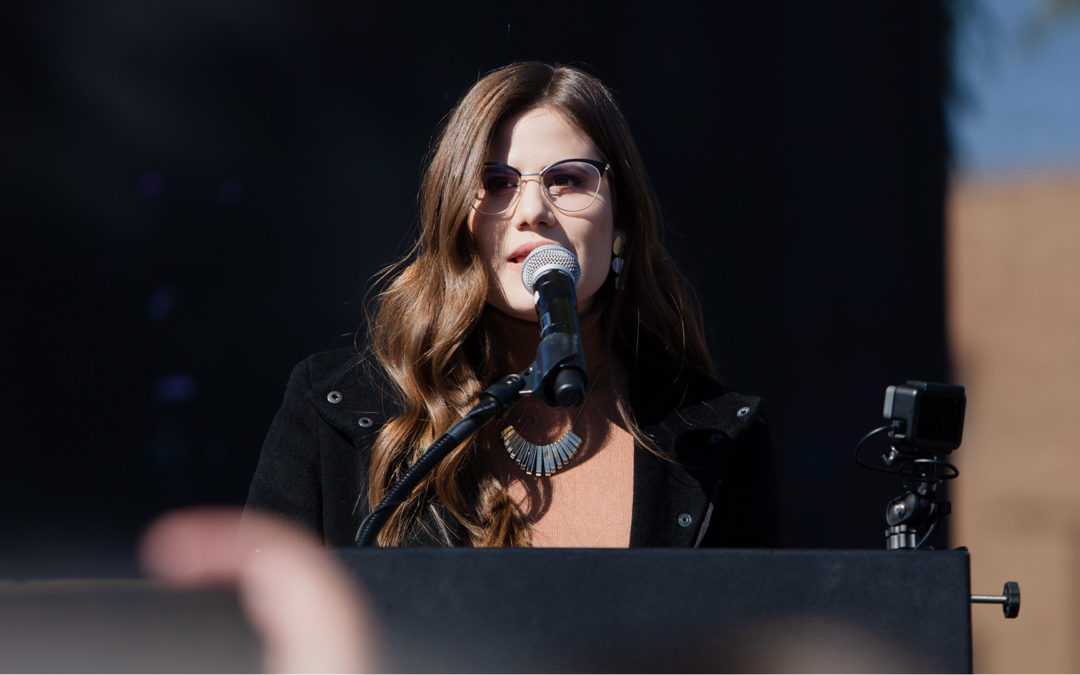If you’re anything like me, most people in your social circle have weighed in on the new Alabama abortion law with incredible passion, including countless people who’ve never publicly expressed their thoughts on abortion before.
In one way, it’s amazing. About 2 million American women experience unplanned pregnancy every year. Nearly 900,000 of them have abortions. We need to be talking about this issue with openness and honesty.
In another way, it’s defeating. As a nation, we’re bitterly divided. That much has been on full display.
In response, I’ve seen some people try to break the tension by criticizing the divisiveness: why can’t we all support women instead of having these conversations? But I disagree with these attempts at skirting division, because I find they incentivize leaving your convictions at the door. The movement to support women facing unplanned pregnancies need not be separate from efforts to value all human life. They are the same effort.
Put simply, passion on this issue is 100% justified. Your position may not be. But your passion is. This one matters.
So when you talk about the Alabama abortion law, how do you stay friends and get somewhere in your conversation?
Here are six questions that I encourage you to use as you engage with the people in your life who are commenting on the Alabama Human Life Protection Act or participating in the #StopTheBans protests that are taking place across the nation.
1. Why does this issue matter to you personally?
Personal experience informs the way we think about the world. And sometimes, as is often the case with abortion and unplanned pregnancy, the experiences are traumatic, transformational, and defining.
Statistically speaking, the majority of people commenting on Alabama and #stopthebans are people who’ve (1) experienced an abortion, (2) experienced an unplanned pregnancy, (3) love someone who has experienced either, (4) or were the product of an unplanned pregnancy.
Most of us have skin in the game on this one, and that should influence the way we talk about it. No well-articulated position on the Alabama law disregards the isolation, pain, and suffering experienced by real people.
These experiences should be heard. They should inform the tone with which we speak to each other. And while they aren’t the only thing we should speak about, they provide important context for every healthy attempt at arriving at the truth.
2. What leads you to doubt the good intentions of the people with whom you disagree on this issue?
Accusations of bad faith or hypocrisy kill emotionally and intellectually honest conversations in an instant. We avoid getting vulnerable about the things we believe when we distrust the people we’re speaking to.
It’s impossible to count the number of chest-thumping, holier-than-thou “hot” takes from the past week. We’re all guilty of them, because we all want to believe that we’re well-intentioned enough to be right. Comments like these are killing productive dialogue with blind smugness across the nation. Yet these feelings are really real.
“If red state like Alabama and Georgia were actually so deeply concerned about the lives of children, addressing their abysmal infant mortality rates might be a better place to start.”
“How did abortion get banned faster than assault rifles? Asking for all the victims of mass shootings.”
“Make no mistake—a state that criminalizes abortion but ranks 50th in public education doesn’t give a shit about children.”
“Until you demonstrate, through your words, actions and policies you support, that you care as much about these things with heartbeats, as you do about what’s in a woman’s uterus, you’re not ‘pro-life.’ You’re simply pro-control of people with uteruses.”
That’s why — however fair or unfair, true or untrue, spot-on or over-generalizing they might be — these feelings should be acknowledged right from the start. Unstated, these subconscious concerns put us and the people we’re talking to on the defensive. Out in the open, these biases — and we all have them — can inform our conversations and help us communicate more clearly.
3. What concerns you most about the Alabama law (or similar laws being passed around the country)?
Getting concrete about real concerns helps avoid building a passionate case based on misinformation. Early reactions suggested, among a great many errant proclamations, that Alabama’s law would put women who get abortions in prison. That’s not true.
Other concerns about the legislation came from reality and ought to be addressed. For example, the bill does not make exceptions for rape and incest. Informed conversation is productive. Misinformed accusation stalls helpful dialogue. Ask this question and avoid talking past each other.
4. Do you believe it’s unfair to ask a woman to carry an unplanned pregnancy to term?
The most effective pro-choice arguments surrounding Alabama start with this question, and they should. Pregnancy is 10 months of your life. It’s difficult, painful, and there’s a high opportunity cost. Of course, this argument requires that abortion is equivalent to not providing care instead of a medical procedure designed with intention to end a human life. This question tends to come up naturally between friends who disagree, and there’s good reason for that. It should be addressed.
If you’d like more information on how to address this question philosophically, Equal Rights Institute’s Timothy Brahm makes a very thoughtful argument.
5. What is the unborn?
Nearly all of the national conversation surrounding the Alabama law so far has avoided the single question that draws the lines between both sides of the debate. The answer to this question cannot be assumed and never addressed if you’re having an open conversation about abortion.
Does the human fetus have human rights? If not, when does it get them? When matters. Because human beings are valuable and entitled to equal human rights. And anytime the basic human rights of someone who can’t defend themselves are violated, it’s up to the rest of us to demand change.
6. What are the most important ways our society needs to change to better support women facing an unplanned pregnancy?
Our society needs to get better at supporting mothers who face unplanned pregnancies — and their children. There’s a lot of work to do:
Some of the work is behavioral. We need parents who let their children know that nothing they do, including unplanned pregnancy, will separate them from their support. We need friends who make it known they’re willing to walk alongside her every step of the way. We need young men who speak well of and embrace fatherhood, even when it means giving something they’ve never received.
Some of the work is institutional. Only 12% of working women in America have access to paid maternity leave. We need employers who implement pro-mom workplace, so no one has to choose between their job and their child. We need church communities who don’t condemn, but instead offer relentless practical and emotional support to women facing unplanned pregnancies. We need school administrators who are willing to help pregnant students graduate and go get the bright futures that await them.
Some of the work has to do with us. Right now, the vast majority of Americans live in communities where many women who face unplanned pregnancy do so alone. Each of these conversations should lead us humbly to make a commitment, if we haven’t already. That commitment is to do something — no matter how small or how big — to help create a world where no one faces unplanned pregnancy alone and where the most important decisions in life are made out of love and not fear.
Josiah Friedman is the Founder and CEO of Voices for the Voiceless, the nonprofit cultural movement creating a world where no one faces unplanned pregnancy alone and where every person’s life is valued. Every day, he works to equip communities to support the people in their lives facing unplanned pregnancies. To watch his TED Talk, click here.
Related Articles

#StandbyHer New Year’s Resolutions You Can Begin in 5 Minutes or Less
5 easy first steps to help you make a real impact and #standbyher in 2020.

Andrea Friedman’s Speech Sends a Powerful Message on Female Empowerment on the Anniversary of Roe v. Wade
Read her full speech (in English & Spanish) here.

Dear Michelle, children are not dream-crushers.
5 Thoughts on Michelle William’s Speech at the Golden Globes

